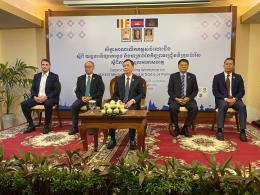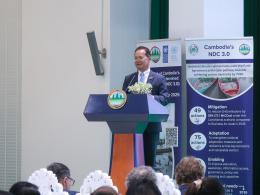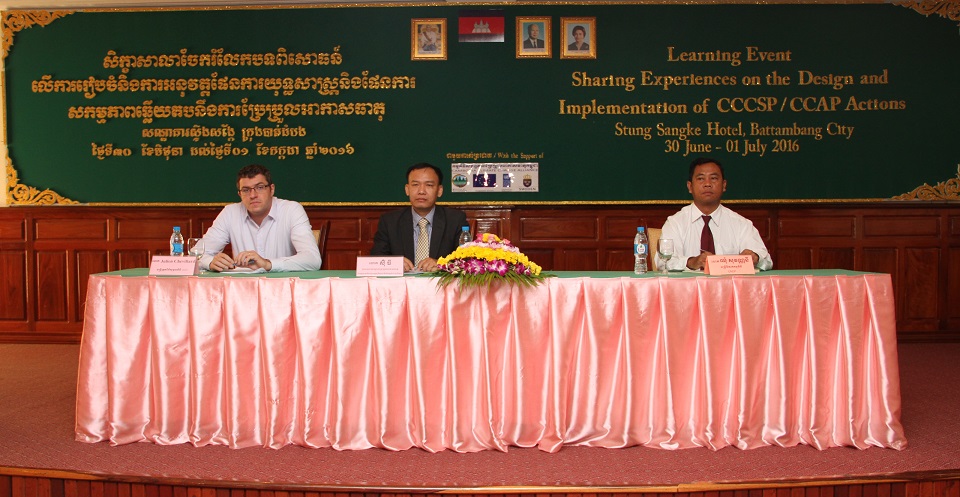 Battambang – 30 June-01 July 2016, Department of Climate Change (DCC), General Secretariat of the National Council for Sustainable Development, with financial support of the Cambodia Climate Change Alliance (CCCA), organized a “Learning Event on Sharing Experiences on the Design and Implementation of Cambodia Climate Change Strategic Plan (CCCSP)/Climate Change Action Plan (CCAP) Actions” at Battambang Province with participation of about 100 climate change practitioners and representatives, including the 21 CCCA-funded projects, NGOs and development partners.
Battambang – 30 June-01 July 2016, Department of Climate Change (DCC), General Secretariat of the National Council for Sustainable Development, with financial support of the Cambodia Climate Change Alliance (CCCA), organized a “Learning Event on Sharing Experiences on the Design and Implementation of Cambodia Climate Change Strategic Plan (CCCSP)/Climate Change Action Plan (CCAP) Actions” at Battambang Province with participation of about 100 climate change practitioners and representatives, including the 21 CCCA-funded projects, NGOs and development partners.
The main objective of this event is taking stock of the progress made in the implementation of the CCCSP. The workshop will provide an opportunity to reflect on how climate change action plans have helped sectors prioritize and focus their response, increase coordination and mobilize resources to generate greater impact on the ground, and how these plans can be leveraged to increase overall effectiveness of CC response.
In his opening remarks Mr. Sum Thy, DCC director, stressed that designing and implementing an effective climate change response is considered a difficult task because the exact timing, place and impacts of climate change are not yet identified with a reliable level of certainty. Experience-sharing is thus very important to improve the efficiency and effectiveness of the climate change response.
Mr. Chhum Sovanny, representing UNDP, reflected on some of the early lessons learnt from the CCCA programme, including the need to reinforce synergies between sectors and projects to maximize impact. The experiences gained from the implementation of CCAP will be important for climate change policies.
The workshop was organized mostly around discussions, with a first set of discussions focusing on institutional arrangements for the implementation of CCCSP/CCAP in concerned sectors. The second session discussed progress made by 8 CCCA-funded projects, exploring key achievements and how the challenges could be tackled. Contribution of line ministries and grantees to the National CC M&E system and their role in strengthening the climate change knowledge management system, exploring the mechanisms used for capturing knowledge and lessons learnt from climate change interventions in a systematic manner were discussed on the second day.
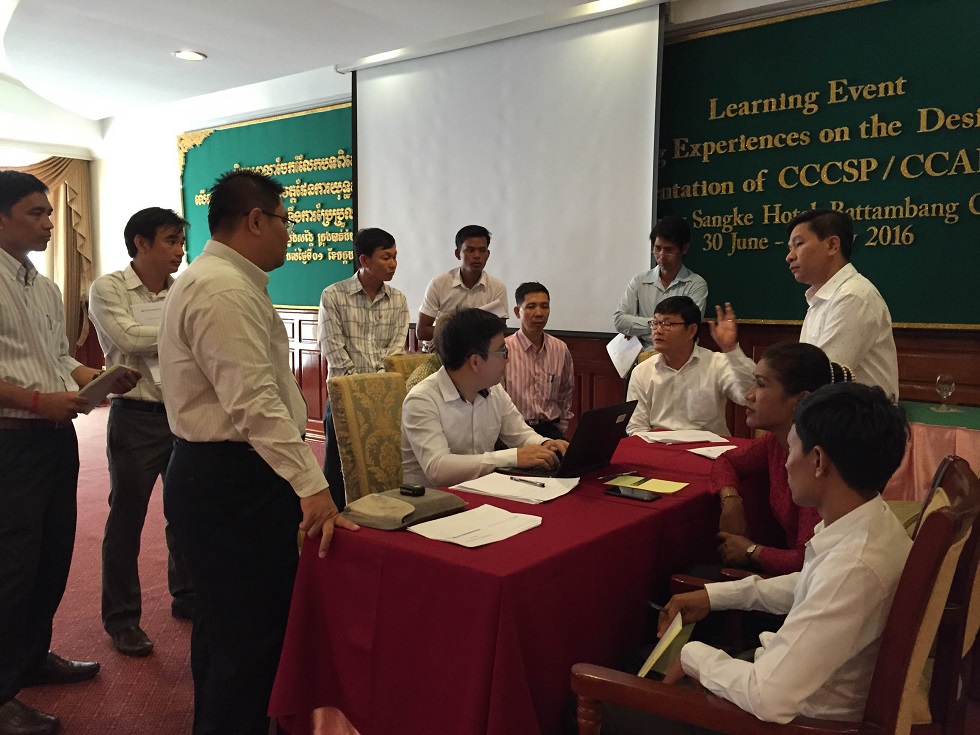
Climate change practictioners discuss on climate change institutional arrangments and intervention measures
A market place exhibiting 11 project brief posters and publications for climate change awareness-raising was also included in the event to provide an opportunity for participants in discussing their respective approaches and learn from each other in a more informal manner.
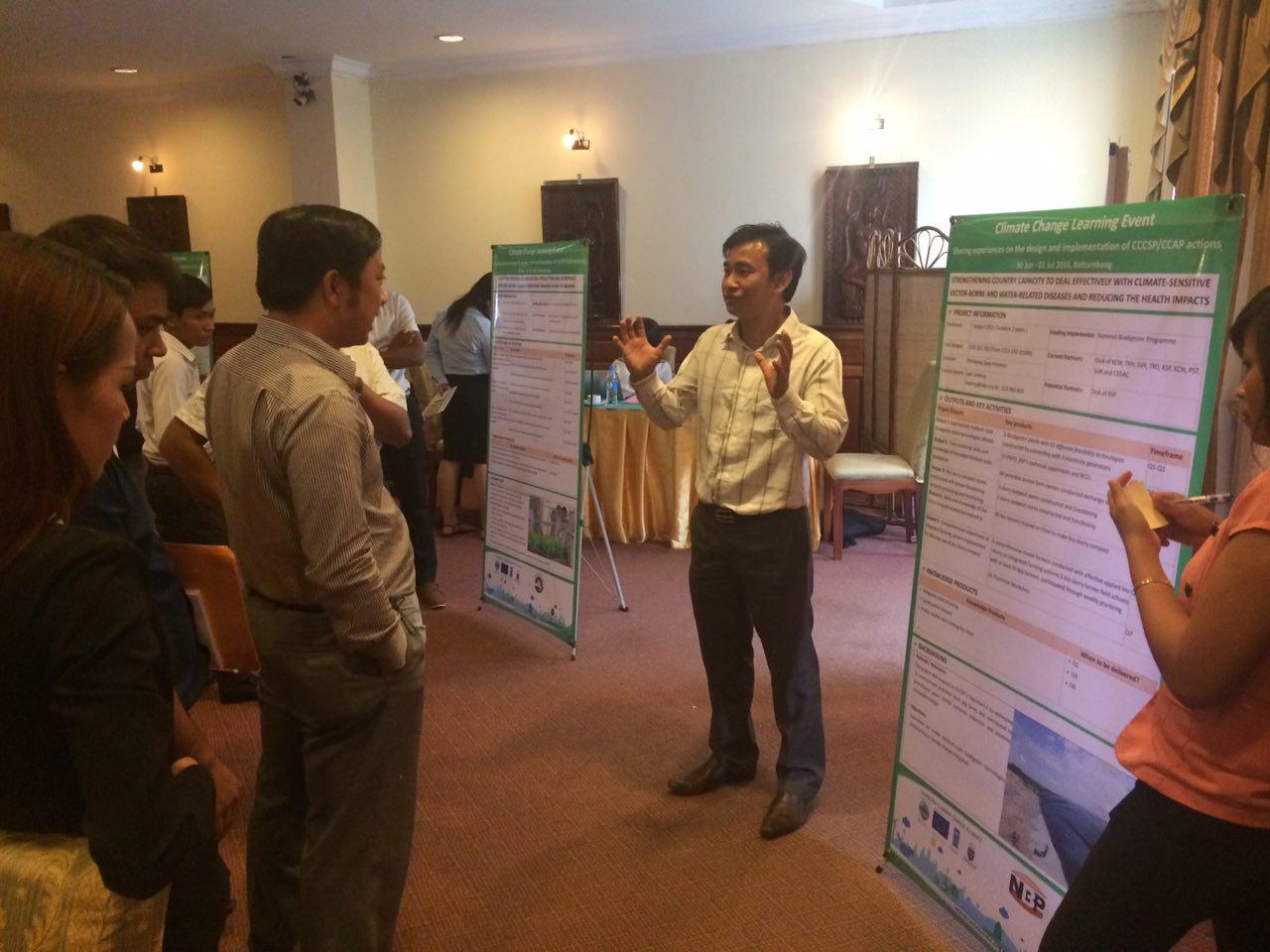
Market place provides brief but precious information of climate change projects
Some of the elements identified for follow-up aiming at scaling up the implementation of CCCSP/CCAPs were:
1) improvement of the knowledge management system for climate change through increased access to basic information on climate change impacts and vulnerabilities in Cambodia and more effective sharing of available data among ministries and with non-government stakeholders;
2) engagement of planning departments in climate change sectoral working group discussions to ensure that climate related interventions are integrated into BSP and PIP;
3) improvement of coordination, implementation and reporting of CCAP implementation through strengthening sectoral institutional arrangements for climate change (including establishing clear TORs and broadening the membership base of climate change working groups);
4) establishment of reporting mechanism on CCAP implementation that ensures systematic reporting (including designing of a simplified reporting template);
5) development of climate change working groups capacity, focusing on optimizing their institutional arrangements and effective reporting and learning functions.

Plenary discussion during the event


